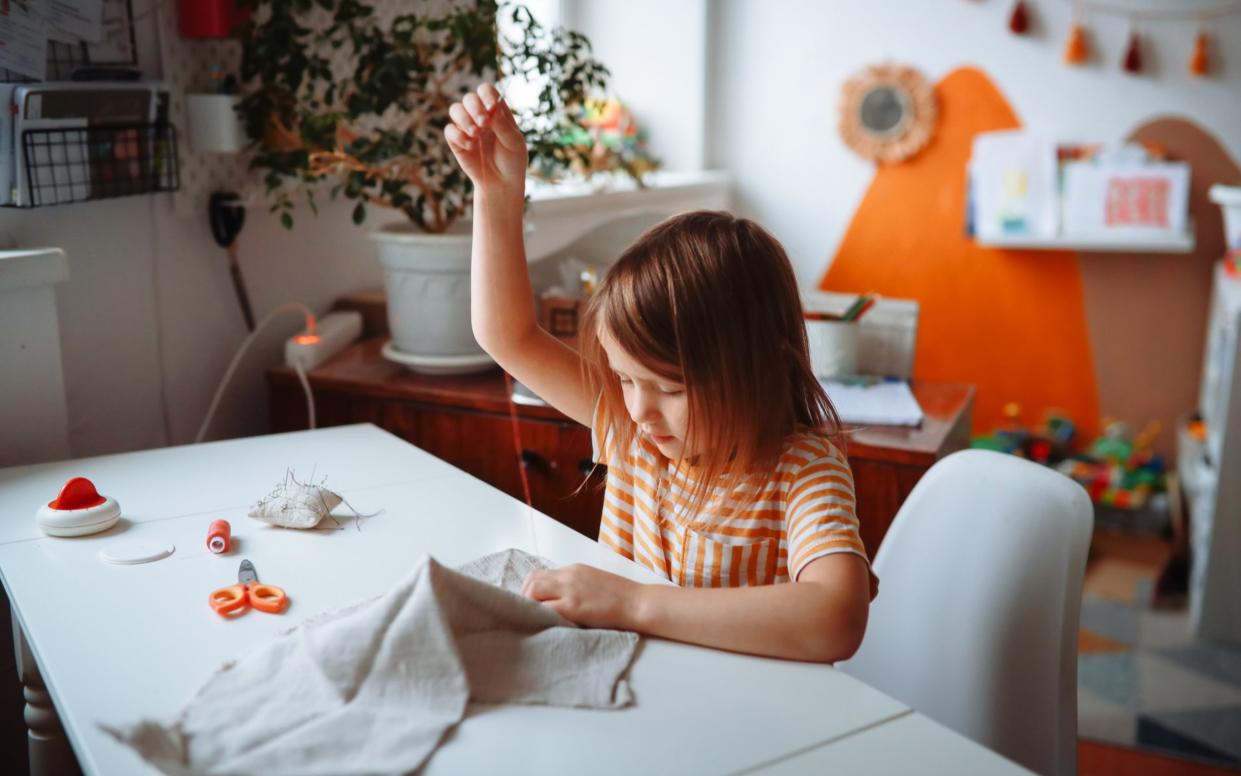Forget therapy – today’s children need to learn how to make-do-and-mend

Two weeks ago, my husband and daughter were baffled and amused to find me kneeling before the open door of the fridge, counting aloud as I waited for the superglue on our broken vegetable drawer to set.
When I explained what I was doing, this prompted yet more mirth. “Why don’t you just buy another?” they chorused. My turn to feel baffled. “Because I can fix this one. Because all it takes is a spot of glue and 20 seconds holding it in place and it’s as good as new.”
What I didn’t say out loud, but felt with a ferocity that surprised me, was: “Because it’s wrong on some very profound level to replace something that can be fixed.”
I thought of that fridge drawer yesterday when I read about the speech the former head of Ofsted made to head teachers last week.
Insisting that children need to learn to “make and mend” for their own fulfilment, Amanda Spielman – who stood down as chief inspector of the government body in January – evoked the bygone world of Laura Ingalls Wilder’s Little House on the Prairie, where “larders, barns, carts, farm tools were all within a child’s grasp”, “most entertainment was homemade or community-made” and children would learn “many of the skills they needed for life.”
Nowadays, a 10-year-old might have a better mastery of Google spreadsheets than I do and be able to put together a 90-second Instagram reel in a flash, but how many of them could mend a loose hem, sew on a button, tighten a screw or change a light bulb? More to the point, how many adults could do all of these things?
I’d like to say that my “make and mend” instincts come from a worthy environmental place, and I do hate waste, but really it’s about the sense of achievement completing those menial practical tasks gives me – and would give anyone able to fix a niggling domestic annoyance in a couple of minutes.
“Creating, making and mending can be satisfying activities that fulfil a deep human need in a highly automated world,” said Spielman. And she’s right.
There’s a therapeutic aspect to “making and mending” that a course of £90 sessions with a therapist might still fail to provide.
We have so little control over what happens in life. Arguably less than ever before. We don’t know when the next pandemic will hit, whether we’ll get a proper summer this year or whether the Number 49 bus will ever materialise.
And so many things – from marriages and illness to the Tory party – cannot be fixed. At least not immediately, with a tight cross-stitch or a few dabs of Araldite.
But glueing together a broken fridge drawer? That made me feel good, capable, in-control. Right up until it came apart in my hand yesterday.

